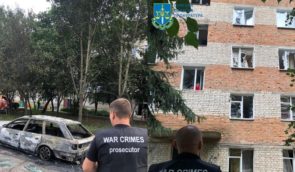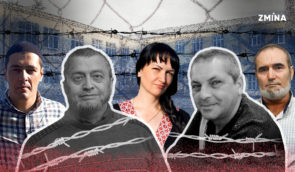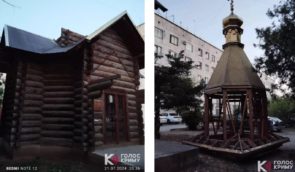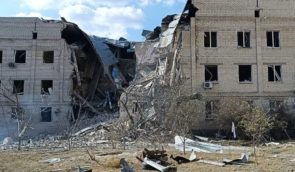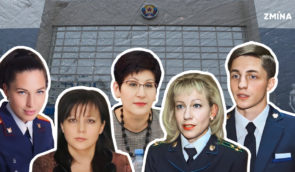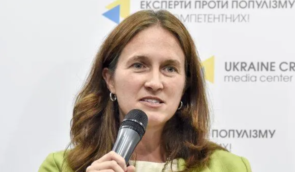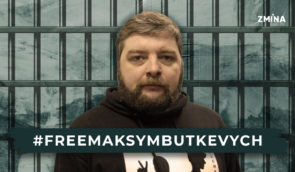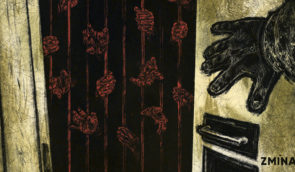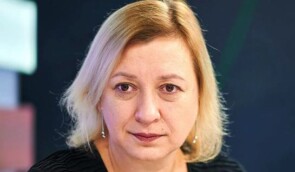From education and activism to work in the Council of Europe: the stories of Roma women Zemfira Kondur and Viola Popenko
In Ukraine, women of Roma origin still often face discrimination, prejudice and restriction of rights, particularly in the field of education and work. Many of them do not receive a full secondary education, some still manage to finish school and a secondary vocational education institution, and only a small proportion of Romani women find work.
The study “Experience of Internally Displaced Roma during the War”, which was conducted by the Roma Women’s Foundation “Chiricli”, also shows that during the full–scale war of Russia against Ukraine, Roma women found themselves in an even more difficult situation. Many of them had to take full responsibility for the lives of their families, as men went to the front, remained in the occupation or in the zone of active hostilities, while women and children sought salvation in a safer territory of Ukraine or outside its borders.
ZMINA talked to two Roma women – Zemfira Kondur and Viola Popenko, who work in an international organisation – the Council of Europe. There are currently only two such women in Ukraine, but every year there are more and more active Roma women. About the challenges they faced at the beginning of a full–scale war and how they found the strength and resources to overcome them, read in the article.
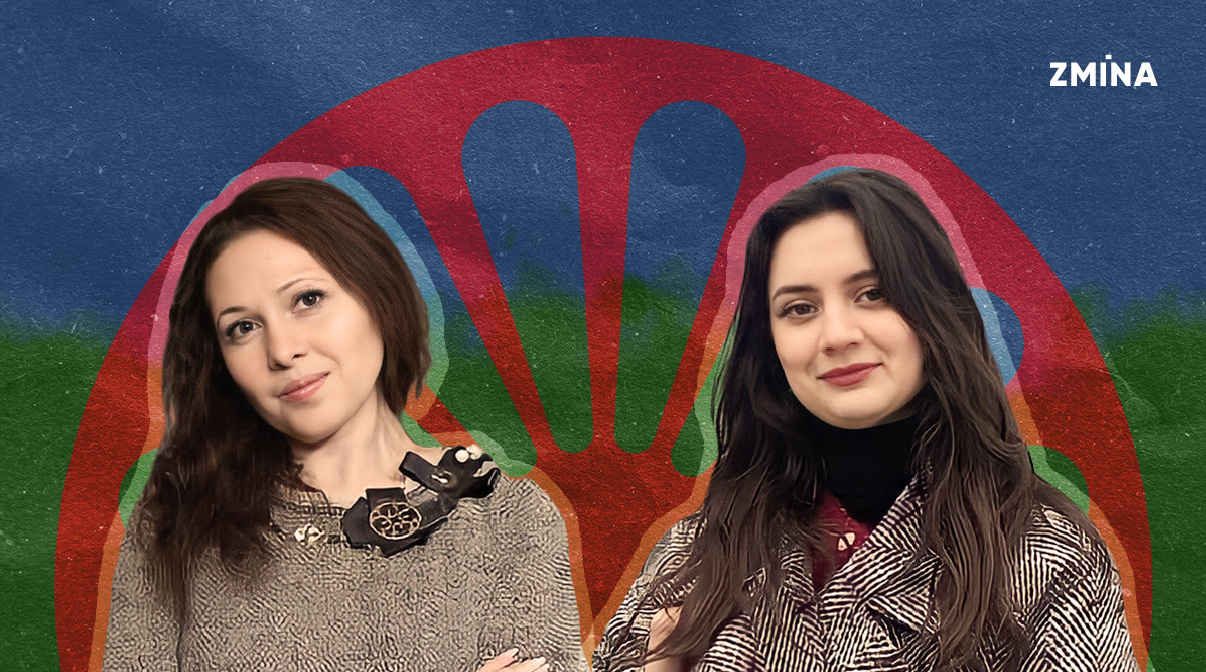
“It was very difficult physically – on the first day I was shaking from stress, I had a very bad headache”
Zemfira Kondur is a well–known Roma activist in Ukraine and abroad, who has been engaged in human rights activities for about 25 years. She received her education in the Izmail State University of Humanities, completed her postgraduate studies in the Zaporizhzhia National University, and began working on the development of the Roma women’s movement.
At the beginning of her career, she worked at the Roma Association in Izmail, an organisation founded by her father, Anatolii Kondur, and after that she headed the Roma Women’s Foundation “Chiricli” for more than 20 years. In 2015, she became the first Roma woman to take the post of deputy head of the interdepartmental coordination group on Roma issues under the Cabinet of Ministers. In 2019, Zemfira was appointed UNDP Ukraine’s Ambassador of Tolerance.
However, Zemfira’s work from the very beginning of her human rights activities was closely connected with the Council of Europe. Since 2003, she worked there as an expert, since 2011 – as a coordinator of the “ROMED” program in Ukraine, and later, in 2018, she joined the organisation as the head of the project “Protecting national minorities, including Roma, and minority languages in Ukraine”. Thus, she became the first Roma woman to join the Council of Europe Office in Ukraine.
Before the full–scale war, its activities mainly concerned the promotion of the rights of national minorities and Roma, defending their opportunities for self–realisation, lobbying for equal rights in Ukraine and at the international level, etc. However, the year 2022 radically changed her life, as well as the lives of many Ukrainians.
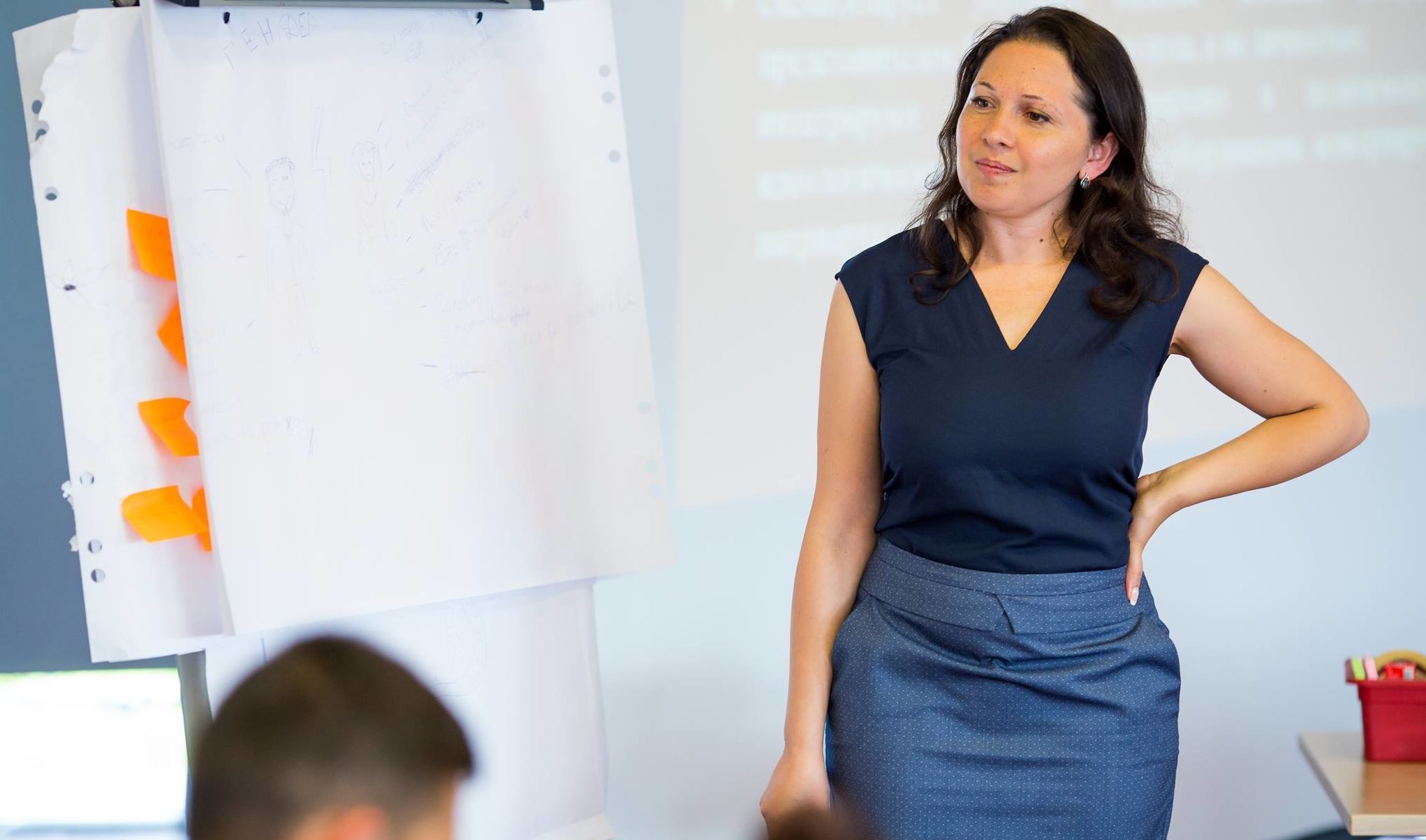
“February 24 was the day of some kind of apocalypse. On this day, we at the Council of Europe planned to hold an event, it was supposed to take place in an online format. But already at 5 in the morning, I started sending letters to everyone, informing them that the event would not take place, because a full–scale invasion had begun. But the participants were under such stress that they didn’t understand me and kept asking me – was it really cancelled? At the same time, I called my relatives, trying to organise their evacuation from Kyiv. It was very difficult physically – I was shaking from stress, I had a very bad headache”, – Zemfira says.
While Zemfira was abroad, she also tried to contact Roma organisations and national partners to find out where they are, if everything is okay with them and if they need any help. So until the end of February, Zemfira worked almost around the clock, drawing up safe routes for the evacuation of people and looking for free housing in the West of Ukraine and abroad.
Roma mediators and organisations were immediately mobilised to help people find information and shelter in safer regions of Ukraine or abroad. International donors also contributed to the provision of various assistance.
Zemfira was constantly in contact with representatives of the national communities of Melitopol – she transferred funds so that they could prepare food for those in need, and also helped with evacuation.
Roma volunteers from Zaporizhzhia public organisation “Latcho drom” delivered food and other humanitarian aid. People kept calling and asking for help. Thus, sometimes it was even necessary to find temporary housing for people in Romania, Moldova, Germany and France.
“Everyone worked day and night. However, Roma activists worked not only in the volunteer field. They also told the international media about what is happening to the Roma community and national minorities in general. I also had a lot of requests regarding this, and to the best of my ability, I also provided this information or gave people’s contacts”, – Zemfira added.
She emphasised that currently Ukrainian institutions are actively working on the observance of human rights, overcoming the challenges caused by a full–scale war.
“Here I see how powerfully the Office of the Commissioner and all ministries and local partners, as well as authorities and public organisations, work at the national level. At the same time, Ukraine constantly adopts European integration laws and implements the recommendations of international organisations”, – she shared.
“It was very painful to see these conflicts and intolerant attitudes”
Meanwhile, public organisations tried to adapt to the new realities of 2022 – constant shelling, blackouts of light and communication, as well as lack of heating. Therefore, the Council of Europe developed flexible work rules for Ukrainian partners.
In April the organisation became the first to start conducting online consultations with partners, Roma organisations and representatives of national minorities.
“We were able to establish a dialogue on coordination: in 2022, our project provided 9 grants to support the activities of public organisations in cooperation with local and regional authorities. The purpose of this was to support their work, provide assistance to IDPs and overcome the challenges faced by the communities. We also continued to provide assistance to authorities at the national and local levels”, – Kondur explained.
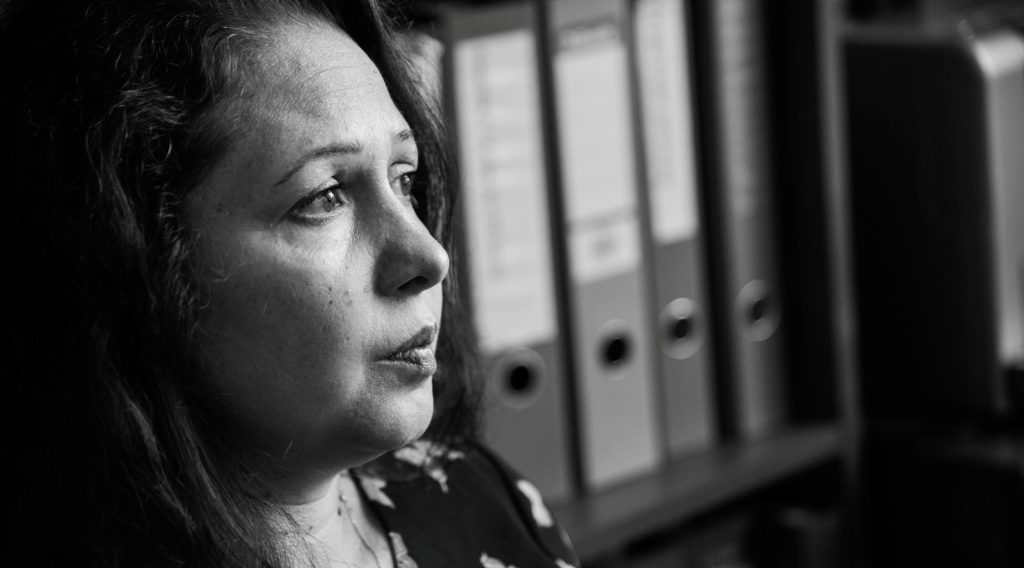 Photo: Valeriia Mezentseva
Photo: Valeriia MezentsevaDuring the first 3 months, the woman also volunteered in Strasbourg together with Red Cross workers. Together with her colleagues, she helped meet people at railway stations, directed them to shelters, and searched for humanitarian aid. In Ukraine, work with Roma IDPs fell almost entirely on the shoulders of Roma mediators and public organisations, in particular the Chiricli Foundation. Meanwhile, Zemfira helped many non–governmental organisations to receive humanitarian aid and attracted donors from different countries.
“Before the full–scale invasion, it was very painful to see conflicts and intolerant attitudes towards Roma in some cities of Ukraine. Today, the situation has already changed – both abroad and in Ukraine. Perhaps one of the reasons is that people saw how the Roma opened their houses to them – they gave rooms to IDPs from different regions of Ukraine. It changes attitudes and builds trusting relationships. But I still feel a lot of pain from the fact that the enemies are destroying our country and killing our people”, – the activist concluded.
She added that she is glad to see how strong Roma activists and media workers have become. In particular, this is evident in the fact that today many countries are asking to prepare mediators from Ukraine for them.
“I was sitting and thinking, how can I stay alive in my own house”
Romani activist Viola Popenko shared the second story of her professional successes and challenges caused by the war. She has started working in international organisations in 2018, when she was 25 years old.
“At that time, I had just graduated from the Central European University in Budapest and immediately took a rather prestigious position at the International Renaissance Foundation – I became the coordinator of the scholarship program. I was the first Roma woman to hold such a position in Ukraine. It was important for me that I managed to find an understanding with the fellows and establish a trusting relationship. Therefore, in this job, I received respect and professional recognition, as well as in–depth knowledge about Roma communities in Ukraine”, – Viola shared.
Previously, the girl herself was a scholarship recipient of the Roma Education Fund, where she later got a job. Later, she started working at the Roma Women’s Foundation “Chiricli” and later – at the Council of Europe. There, Viola worked as an assistant in the project “Youth for Democracy in Ukraine. Phase 3” and performed the function of microfinancing of projects – engaged in procurement, project support, monitored the timely provision of services, etc.
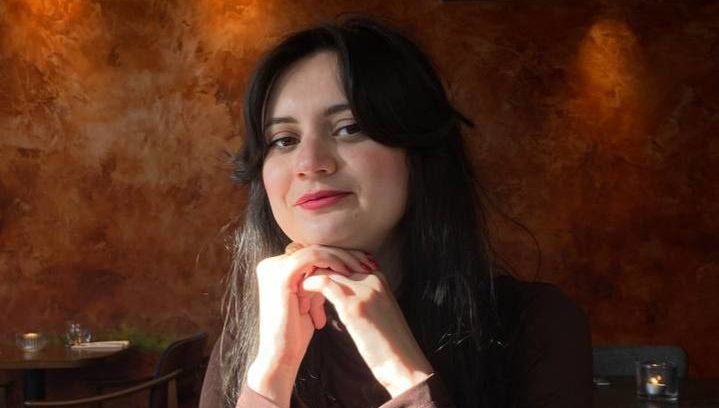
The project is still ongoing and, according to her, it has a rather large impact: thanks to expert help, the deputies adopted the professional standard “About the youth worker”, which enables young people to officially get a job and provide services in the field without any barriers.
In addition, within the scope of the project, training and educational activities are carried out regarding the standards of the Council of Europe in the field of protection of youth rights.
Currently, Viola is a coordinator in a project implemented by the Council of Europe to support Ukraine in the preliminary stages of negotiations for accession to the EU. In particular, it concerns the harmonisation of legislation and policies on protection against discrimination and promotion of the rights of persons belonging to national communities in accordance with European standards.
A full–scale war found Viola in Chernihiv, as she was working remotely. On February 24, the woman and her parents went to Kyiv on business, not yet knowing that the war had begun. When they passed Brovary, they saw how the military base was burning, but they did not understand why exactly. Viola decided not to stay alone in the capital, so after taking her things, passport and laptop from work, she returned home with her family.
“Then the offensive began, and I sat for three weeks and could not leave – the city was surrounded by battles, and there were no evacuation trains. I sat and thought about how to stay alive in my own house. Electricity and water went out, there was no communication. We didn’t even know when the “green corridor” would be, and besides, our parents didn’t have enough fuel to leave”, – the activist said.
Knowing English and having an education gives you much better opportunities
One day, the family still decided to evacuate, even in spite of the absence of the so–called “green corridor”. They moved through the fields, but after 12 kilometres the car broke down. Viola immediately wrote about it in the chat room of Roma activists, and after a while the “Chiricli” Foundation and the Human Rights Centre ZMINA sent her funds for her departure. Meanwhile, Roma activist and mediator Maryna Bublyk asked volunteers to come and tow the car away.
“We were brought to the territorial defence, which meticulously checked our documents, and then, when the curfew began, we were allowed to enter the boiler room, and we sat there all night, heating the boiler with firewood. In the end, in the morning, my colleagues from the Council of Europe found a service station in a nearby village”, Viola shares.
Workers arrived and fixed the car. The girl’s parents returned to Chernihiv, and she got into the transport of strangers and with transfers was able to get to Budapest, where her sister was studying. Previously, Viola also studied in this university, so as a refugee from Ukraine, she was allocated a room for 2 months free of charge.

The European Center for the Protection of Roma Rights from Brussels offered her to work on a study about Roma refugees, which was supposed to show the real problems of Ukrainians, as well as attract help for them.
“It was psychologically easier for me to constantly do something, instead of just sitting and grieving. I was once again convinced that knowing the English language and having an education gives much better opportunities and allows you to survive in difficult circumstances. I often compare myself to Roma women who fled the war without knowing the language. We received information about Roma women with children who went abroad without documents, education and knowledge of foreign languages. It was extremely difficult for them, especially in Hungary”, – she emphasised.
Later, Viola moved to Great Britain and continued her work at the Council of Europe. At the same time, she also helped the Roma community of Chernihiv – she agreed on the provision of humanitarian aid. After going through this path, the girl felt confident that she and her sister would definitely be able to survive in difficult circumstances.
Roma girls and women are already on the way to change
Currently, Ukraine needs institutional policies and programs to increase the activity and promote the participation of Roma women in decision–making processes at the central and local levels. Although the “Roma Strategy” and the Action Plan related to it determine the need to change the situation of the Roma through the development of policies, they do not provide for specific anti–discrimination and gender–specific measures.
In 2018, Ukraine was represented at the national level by only two Roma women, one of them – Zemfira Kondur – as the deputy head of the interdepartmental coordination group on Roma issues under the Cabinet of Ministers of Ukraine, and the other – a member of the same group, Eleonora Kulchar.
Today, Roma women are a particularly vulnerable group among internally displaced persons. Many of them face particular difficulties in trying to access humanitarian aid, housing and employment. But at the same time, the efforts of Roma women to help the Ukrainian population and bring victory closer are noticeable and tangible.

